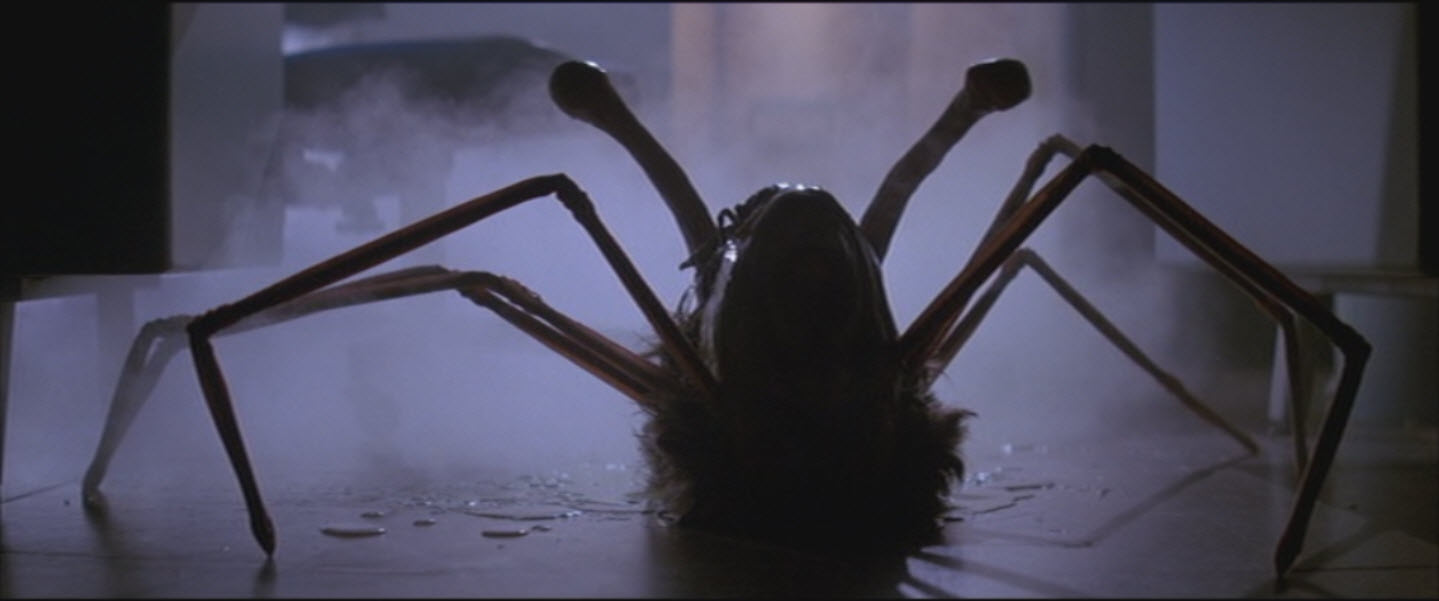1.
“Woody Allen at Cannes: Life Has No Meaning, and His Amazon Series Could Be a ‘Cosmic Embarrassment’“: The Wrap‘s Steve Pond further confirms a belief I’ve had that the biggest laughs the director has earned in recent years have often been at Cannes press conferences. Related: Allen chats with Deadline‘s Mike Fleming Jr.
“‘It’s true of any religion,’ he said. ‘The fact that it doesn’t work doesn’t matter. It does make your life better if you have something to believe in. The bottom line is that life has its own agenda, and it runs right over you. We’re all going to end up in a very bad position sooner or later. The same position, but a bad one — and the only way out of it, the only thing you can do as an artist, is to explain to people how life is worth living and has a meaning.’ He shrugged. ‘Now, you can’t really do that without conning them. We’re living in a random universe with no meaning. Everything that Shakespeare or Michelangelo or Beethoven did will all be gone one day. It’s very hard to sell anyone a bill of goods that there’s any good to this.’ So his tactic, he insisted, is simple: ‘The only possible way you can beat this is through distraction. I distract myself by making these movies. I think, ‘Oh God, can I get Emma and Parker to get this scene right?’ Like it means something, like if I make a bad movie I’ll die.’Allen, who said that he always wanted to be a ‘ponderously serious’ filmmaker but only turned to comedy because ‘that’s where my gifts were,’ and nobody would give him money to make serious films, summed up his career this way: ‘Moviemaking is a nice thing to keep you busy. It’s like they give the inmates in an institution basket weaving or something. It keeps you occupied.’ Then again, maybe he was in a particularly dark mood despite the bright Mediterranean sun outside. After all, press conferences and photo sessions are hardly Allen’s favorite ways to pass his time. When one interviewer asked him if he ever had his own thoughts about murdering someone, he had a quick answer. ‘Even as you speak.’”
2.

“How ‘Walk Hard’ revived the lost art of the spoof“: The Dissolve‘s Scott Tobias praises Jake Kasdan’s under-loved parody of studio-bred biopics.
“As a noted student of comedy, ‘Walk Hard’ producer and co-writer Judd Apatow seems like the right person to bring this disreputable form back from the dead. And in this musician biopic, he and Kasdan have chosen a sub-subgenre with all the clichés of the standard biopic—the cradle-to-grave shapelessness, the tacky ‘eureka’ revelations, the expository dialogue, the phony redemption—and the added benefit of cameos from real-life rockers, who have a tendency to live out their forebears’ clichés. So it’s an endlessly rich well for Kasdan and Apatow to tap without having to dip too far into random silliness for its own sake—though even when they do that by, say, having two characters tragically cut in half in machete fights (‘Dewey, I’m cut in half pretty bad’), it’s supported by callbacks and payoffs. ‘Walk Hard’ is a funny, wide-ranging, era-spanning comedy with the joke-a-second ethos expected of a spoof, but it’s as conceptually rigorous as ‘Airplane!’ or ‘Young Frankenstein,’ and that’s what holds it together.”
3.

“A Q&A with Dean Cundey, ASC, about his work on John Carpenter’s ‘The Thing’“: Conducted by Jim Hemphill for The American Society of Cinematographers.
“When he made the transforming dog, he said, ‘I can only do so much to make this look real. The rest of it is up to you.’ It was evident to me that his sculpting was so great that we needed to see the creature. I hated to relegate it to silhouettes or something like that, but I also knew that if we went too far, we could give away the fact that it was a lump of plastic with paint on it. I worked with Rob to develop this idea that we would set up each encounter in an area where we could justify using a number of very, very small lights that would highlight areas, surfaces and textures. Then I would light the back wall of the set so that you could see the shape of the creature. It became a very interesting game of showing just enough for the audience to understand what was happening while still keeping the creature a little mysterious. Originally, I wanted to vary the camera speed during the transformations because Rob and I thought they might be more interesting if we didn’t shoot them at regular speed. We went through a couple of iterations, trying to vary the speed from very fast motion to slow motion all in one shot, and, of course, the technical challenge was that as you vary the frame rate, the exposure changes. As you increase the speed to slow the image down, everything gets darker because the negative is seeing less light. We worked with Panavision and a couple other companies to try to develop a camera that would automatically adjust the exposure, and we got kind of close, but we never succeeded. Of course, now that kind of thing is relatively easy.”
4.

“Blues Legend B.B. King Dies at 89“: At The Hollywood Reporter, Phil Gallo eulogizes the music icon, who passed away yesterday.
“The Mississippi-born guitarist, who had suffered from Type II diabetes for two decades, died peacefully in his sleep at 9:40 p.m. PDT Thursday at his home in Las Vegas, his attorney Brent Bryson told the AP. In October, King fell ill during a show, and after being diagnosed with dehydration and exhaustion, canceled his concert tour and never returned to touring. With his trusty Gibson guitar Lucille, King developed his audiences in stages, connecting with African-Americans region by region in the 1950s and ’60s, breaking through to the American mainstream in the ’70s and becoming a global ambassador for the blues soon thereafter, becoming the first blues musician to play the Soviet Union. King, whose best-known song was ‘The Thrill is Gone,’ developed a commercial style of the blues guitar-playing long on vibrato and short, stinging guitar runs while singing almost exclusively about romance. Unlike the musicians who influenced him, Blind Lemon Jefferson and T-Bone Walker, for example, or his contemporaries Muddy Waters, John Lee Hooker and Howlin Wolf, whose music bore geographic identities, King’s music was not tethered to the style heard on the Mississippi plantation or the Beale Street sound in Memphis, where he first established his career.”
5.

“Life Is ‘Triggering.’ The Best Literature Should Be, Too.“: New Republic‘s Jerry A. Coyne paints a cautionary portrait of Literature Fascism.
“I am sorry about the student who couldn’t abide the mention of sexual assault, but she should be getting help for her triggering from a therapist, not from a professor. Without such help, she’ll go through life triggered by every magazine and newspaper she sees. The pathway of such trigger warnings—not just for sexual assault but for violence, bigotry, and racism—will eventually lead to every work of literature being labeled as potentially offensive. There goes the Bible, there goes Dante, there goes Huck Finn (loaded with racism), there goes all the old literature written before we realized that minorities, women, and gays weren’t second-class people. And as for violence and hatred, well, they’re everywhere, for they’re just as much parts of literature as parts of life. Crime and Punishment? Trigger warning: brutal violence against an old woman. The Great Gatsby? Trigger warning: violence against women (remember when Tom Buchanan broke Mrs. Wilson’s nose?). The Inferno? Trigger warning: graphic violence, sodomy, and torture. Dubliners? Trigger warning: pedophilia.”
Image of the Day
![]()
If you haven’t heard yet, there’s a movie called “Mad Max: Fury Road” that opened today. I suggest you see it.
Video of the Day
The satirical geniuses at Honest Trailers have released their 100th episode spoofing this year’s laughable turkey “Fifty Shades of Grey.”












